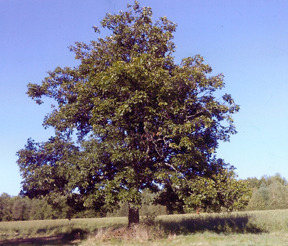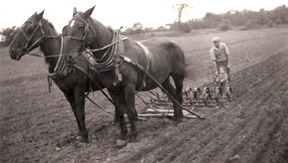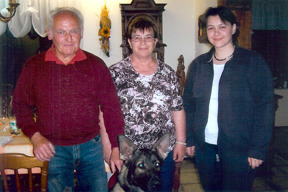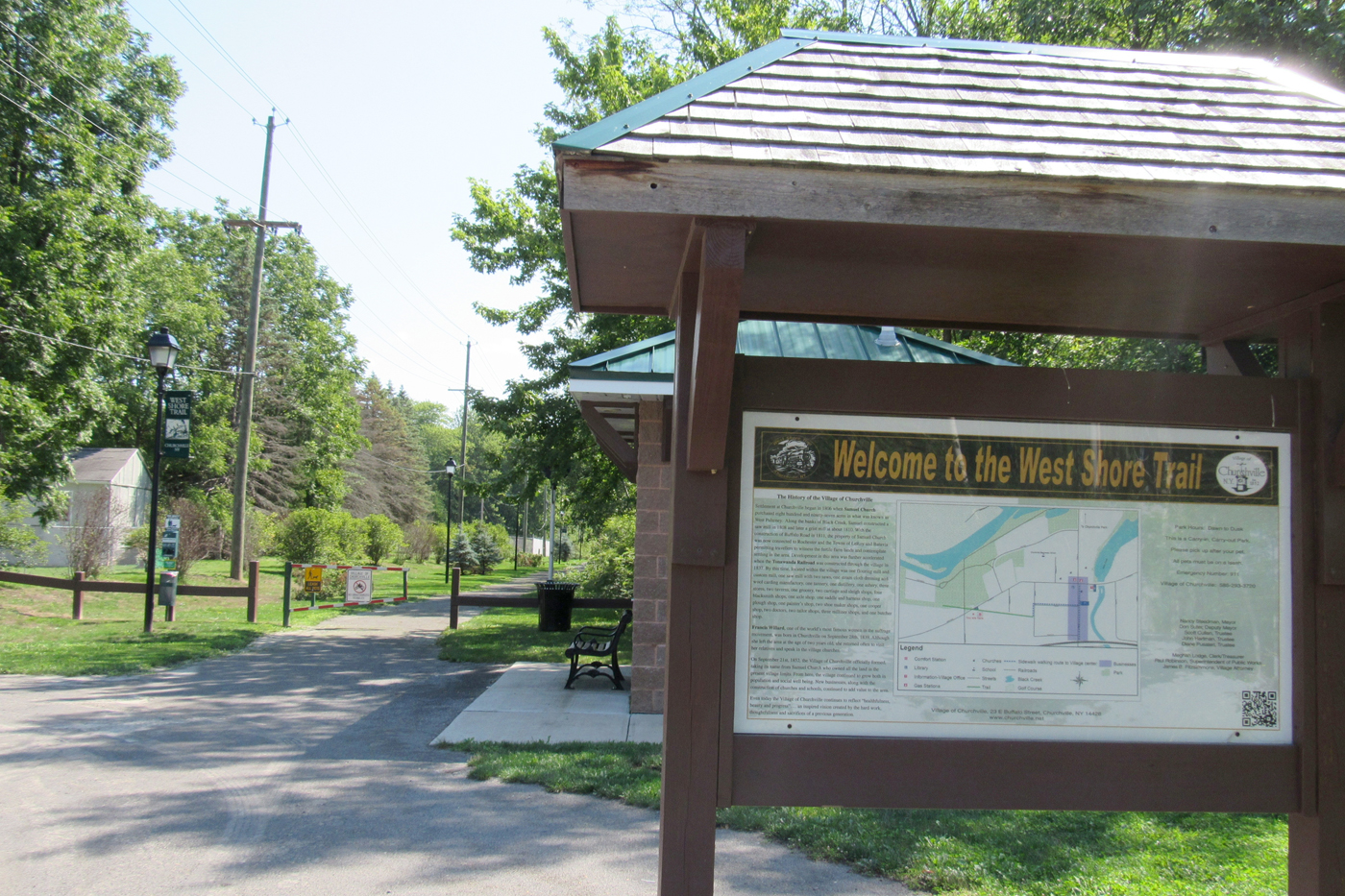The Home Place
by Joe Reinschmidt
 The Shag Bark Hickory where we took many breaks and shared a snack.When folks learn that I am currently living in the house I was born in, their response is, “Really?” or “Awesome!” or “Very rare in this day and age,” or even “Unbelieveable.”
The Shag Bark Hickory where we took many breaks and shared a snack.When folks learn that I am currently living in the house I was born in, their response is, “Really?” or “Awesome!” or “Very rare in this day and age,” or even “Unbelieveable.”
Recently someone asked me how I felt about that – were there any special emotions?
Not being a person who ranks very high on the emotional pyramid, I said I’d have to think about it for a while. I had to admit there were special feelings for this place in Parma which was a big part of my life.
I was told it was cold and snowy on that last day of January when the time had come. The doctor, Knox Brittain, and a midwife were called. My father Joe related how he had shoveled snow over an hour just so the doctor could pull his car into the driveway and get to the door. I never heard how long the birthing process was. I’m sure glad it was successful especially in light of the fact that my parents had suffered the agony of a full term still born boy a few years earlier.
The maternity/delivery bed was the dining room table, presumably outfitted with a mattress, sheets and some pillows, not that it made any difference to me. The dining room was chosen since it was the warmest place in the 13 room house. The heat for the house was a wood burning, Round Oak, pot bellied stove in a corner of the dining room. It was supplemented by a wood/coal stove in the kitchen which was also the cooking stove.
After the delivery, Doc was asked what they should do with the baby. His answer was “wrap him in some clean bed linen, put him in the laundry basket and set it near the stove.” My wife Heide believes that explains a few things about me. She thinks my head must have been too close to the stove and some brain matter was overheated. Whatever!
 Helping Dad with the field work in fall 1937.Despite that possibility I did survive and grew up. Over the years that room was the scene of countless holiday dinners and other special gatherings. It was where homework was done, board games and cards were played and stories were told. Often the table would be covered with a clean bed sheet and mother Anna’s homemade rolled out noodle dough was placed there for drying before being cut into thin “soup” noodles or broader ones for general use. Other times the table was taken over by Anna’s dress making efforts with material and patterns filling it up for a few days.
Helping Dad with the field work in fall 1937.Despite that possibility I did survive and grew up. Over the years that room was the scene of countless holiday dinners and other special gatherings. It was where homework was done, board games and cards were played and stories were told. Often the table would be covered with a clean bed sheet and mother Anna’s homemade rolled out noodle dough was placed there for drying before being cut into thin “soup” noodles or broader ones for general use. Other times the table was taken over by Anna’s dress making efforts with material and patterns filling it up for a few days.
Occasionally, especially during the winter, if someone was sick a temporary bed might be located there for the comfort of that individual. In July of 1970 it became a hospice room for three days. My father, Joe, was nearing the end of his struggle with lung cancer and the debilitating effects of radiation treatment. He had been in the hospital a few weeks but wanted to come home. Arrangements were made and he was transported by ambulance on a Friday afternoon. On Sunday he began to suffer episodes of choking which he attributed to Anna’s forcing him to eat her homemade chicken soup. When the doctor came he told him “she must have made that soup from the oldest chicken we had.” Our Pastor came, prayed with us, talked to Dad and gave him a blessing to prepare him for his final journey. An hour or so later he died. This was one illness Anna’s chicken soup was not going to cure. Some might think of it as a morbid event but we felt we were blessed to be an integral part of his last hours on earth right here at home. He did have a devilish, sly side to him so I’m almost convinced he planned it that way.
One of the many happy memories I have is when he was working in the fields with the horses and I was permitted to take his afternoon snack to him. It was often a Limburger sandwich and a mason jar full of our own milk which Anna would pack. If the field was across the creek she would go with me until I and the snack were safely across the creek. I would then proceed to the shag bark hickory tree which still stands in the middle of the field and wait there until Joe came around with the horses. He would rest them in the shade while we sat on the ground and enjoyed the snack. He always shared it and though I didn’t especially care for Limburger it tasted pretty good on those occasions. We shared the milk, too, even though it was never real cold and wasn’t pasteurized. How did we ever survive that?
 These Reinschmidts in Germany and Parma’s Joe Reinschmidt share a common great-great-great-grandfather. They live on property which has been in the family for several generations. Werner Reinschmidt with wife, Monika and daughter, Simone, photographed when Joe visited in 2010, are joined by Rowley (bottom center).The memories of Anna singing German nursery songs as she held me on her lap, and letting me help with baking, cooking, noodle making and many other activities can never be replaced. Her insistence on us helping with various chores in the house, garden and farm fields was not always enjoyable, but it was a lesson in the necessity of learning to do your part in life, for the good of all. To continue many of those things with our children and now with our grandchildren, in the setting where I learned them, is a blessing.
These Reinschmidts in Germany and Parma’s Joe Reinschmidt share a common great-great-great-grandfather. They live on property which has been in the family for several generations. Werner Reinschmidt with wife, Monika and daughter, Simone, photographed when Joe visited in 2010, are joined by Rowley (bottom center).The memories of Anna singing German nursery songs as she held me on her lap, and letting me help with baking, cooking, noodle making and many other activities can never be replaced. Her insistence on us helping with various chores in the house, garden and farm fields was not always enjoyable, but it was a lesson in the necessity of learning to do your part in life, for the good of all. To continue many of those things with our children and now with our grandchildren, in the setting where I learned them, is a blessing.
At Christmas time we didn’t put up our tree until the day before Christmas, and decorated it in the evening. At some point Dad would say “let’s go upstairs and watch for Santa Claus.” While up there, peering out the often frosted window pane, I strained to see Santa first. Suddenly Dad would say, “There he is – did you see him?” I never did. Then we’d hear Mom saying “Thank you and goodbye Santa” and the porch door would close.
When we came down year after year, there were gifts under and around the tree.
Of course life itself is a gift, the first and the greatest one we are all given. Some of us had the special opportunity to have good, loving parents in a setting that provided many lessons of the importance of that life. If I had to describe my experience with one word, it would be “privileged.” So yes, there is great sentiment on my part regarding this house and the farm. It wasn’t always easy. The chores were at times hard, hot, dusty and difficult. However, just how good it was overall becomes more evident with the passing of time.
There a number of reminders of Anna to be seen, such as her Maytag wringer type washer and the one bar of her homemade lye soap that remains. There are dozens of now empty canning jars that by this time of year would mostly be full of canned goods for the coming winter.
Joe’s presence here is also remembered through the carpenter tools that he used for years and some of the things he made. He also left some unique evidence of his activities such as the 10 or 12 empty Camel cigarette packs that tumbled out of the kitchen wall in 2002, when we remodeled the area he had remodeled in the early 1940s. The best item was a cedar shingle we found while removing some from the west wall of the house. On the back he had inscribed with his carpenters pencil, J. Reinschmidt, November 1939. Could he possibly have thought that I would someday find it?
This place has been in our family for 83 years but we have a long way to go to catch up with Werner Reinschmidt, in Buehlertal, Baden, Germany who is still living on and operating the vineyards of our common great-great-great-grandfather Lukas Reinschmidt (1766-1837) who was perhaps influenced by his father Joannis who was a vintner. Two years ago, while in Germany, I had the pleasure of being invited to Werner’s beautiful home, adjacent to some of the vineyards. We met his wife and daughter, enjoyed a delicious dinner, a few glasses of his mighty fine wine and conversed as if we had known each other for a long time. It appears that kinship doesn’t have a time frame. I hope that can be said for many of you, too, and that you also enjoy your family and their history as much as I do mine.


